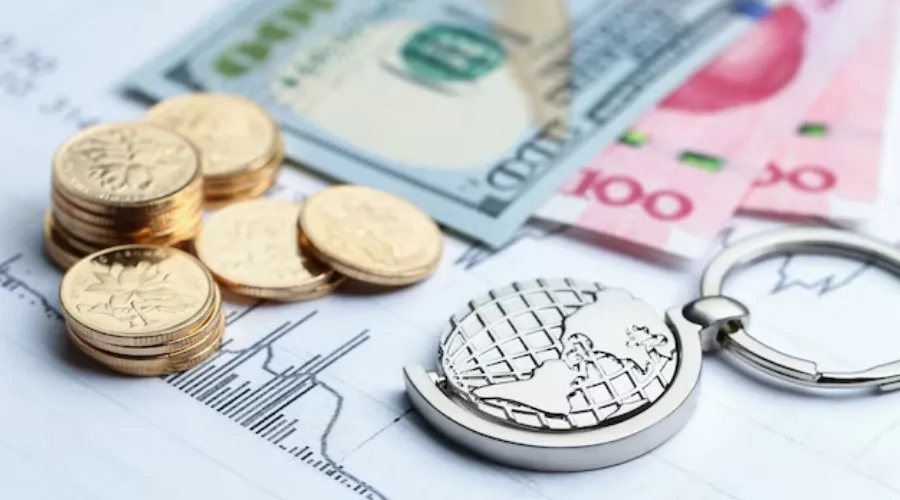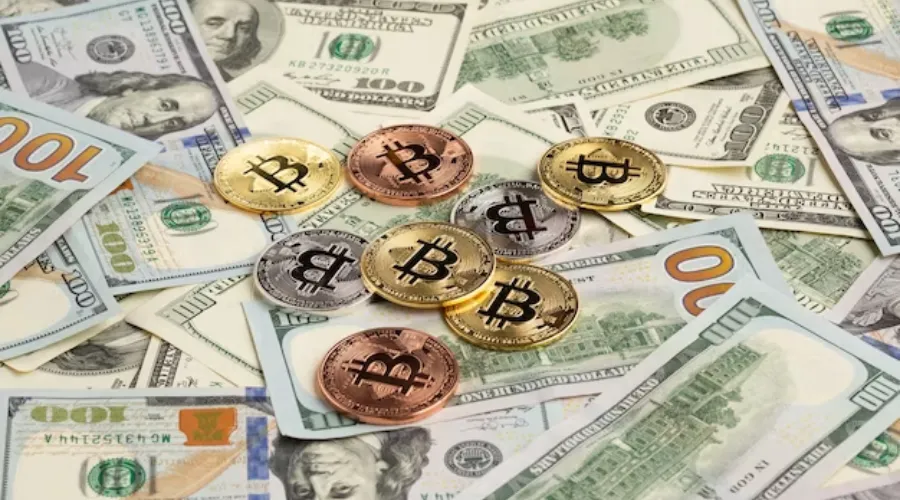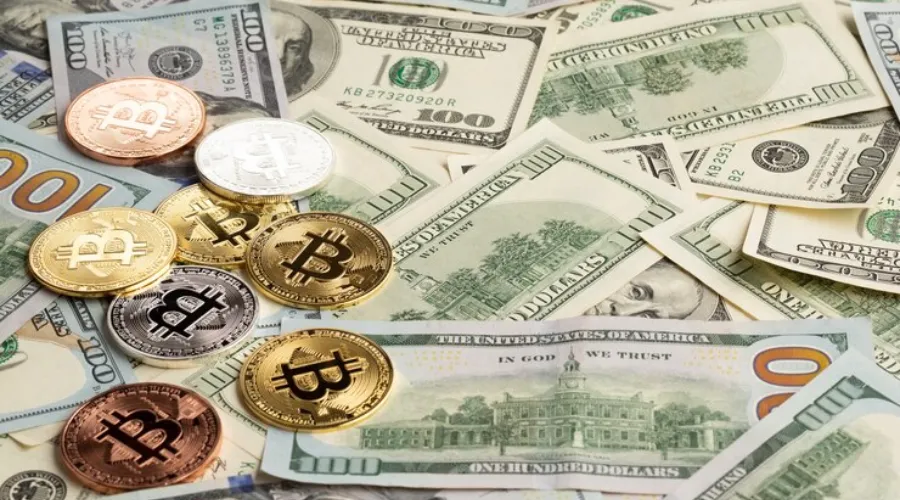In our progressively interconnected world, the idea of currency exchange expands far past its conventional applications. It has advanced into a critical aspect of both individual funds and worldwide commerce, touching virtually every aspect of our lives. Whether you’re planning an international vacation, conducting business across borders, or simply managing your investments, understanding currency exchange is paramount. In this comprehensive direct, we’ll dig into the complexities of currency exchange, investigate its multifaceted importance, and prepare you with profitable techniques to explore this energetic financial landscape effectively.
Currency exchange 101: Laying the foundations

Before we plunge into the intricacies of currency exchange, let’s lay the groundwork by comprehending some fundamental concepts and terminologies:
1. Currency pairs
- Currency exchange is essentially the trade of one currency for another, forming pairs like EUR/USD (Euro/US Dollar) or GBP/JPY (British Pound/Japanese Yen).
- Each currency pair represents the relative value of one currency against another, which is crucial for determining exchange rates.
2. Exchange rate
- The exchange rate is fundamentally the cost of one currency expressed in terms of another currency.
- It acts as a benchmark for evaluating a currency’s value on the world market and establishes how much of one currency is required to buy one unit of another.
3. Forex (Foreign exchange) market
- The bustling market where currency exchange transactions take place is referred to as the forex market, or foreign exchange market.
- It has the distinction of being the biggest and most liquid financial market in the world, enabling daily trading worth trillions of dollars.
4. Currency symbols
- Through distinctive symbols or abbreviations, such as USD for the US Dollar, EUR for the Euro, and JPY for the Japanese Yen, currencies are internationally recognized.
- Different currencies can be recognized and represented more easily thanks to these symbols.
5. Currency converter
- A useful tool that makes converting money between different currencies easier is a currency converter.
- It ensures accurate and effective conversions and is especially useful when working with different currencies.
Importance of the exchange of currencies

Currency exchange is far from being a standard financial transaction; it opens up a world of possibilities and difficulties that go beyond merely exchanging one currency for another. Here are some factors that demonstrate how important it is to comprehend currency exchange:
1. Global commerce
- Currency exchange, which promotes transactions between nations, is at the core of global trade.
- For companies that conduct international business, having a thorough understanding of exchange rates and their variations is crucial.
2. Travel and tourism
- For the globetrotters among us, currency exchange wields a direct impact on the purchasing power of our money while traveling abroad.
- Travelers are better equipped to make wise financial choices while on the road when they have a thorough understanding of exchange rates.
3. Investment diversification
- The astute practice of diversifying investment portfolios often entails venturing into assets denominated in various currencies.
- The risks and returns of these cross-border investments are significantly impacted by currency exchange.
4. Risk management
- The ever-fluctuating nature of currency exchange rates introduces an element of risk into the financial landscape.
- Effective risk management strategies, which may include hedging against currency risk, are essential for safeguarding assets and investments.
5. Economic indicators
- Exchange rates are not arbitrary; they are influenced by a nation’s economic health and key indicators such as inflation rates, interest rates, and GDP.
- Keeping an eye on these economic indicators can provide you with important information about how currencies will move in the future.
Factors influencing exchange rates

Exchange rates are seldom static; they are subject to a multitude of factors that exert continuous pressure on their values. Understanding these influential factors is key to making informed financial decisions. Here are some pivotal determinants:
1. Interest rates
- Higher interest rates tend to draw foreign investment, increasing demand for the nation’s currency and raising its value.
- Conversely, lower interest rates can result in a depreciation of the currency.
2. Inflation rates
- Currencies from countries with lower inflation rates generally appreciate in value.
- High inflation rates, on the other hand, can erode the purchasing power of a currency, leading to depreciation.
3. Economic performance
- A robust and growing economy often attracts foreign investment, bolstering its currency.
- Conversely, economic downturns can weaken a currency’s value.
4. Government policies
- Through monetary and fiscal policies, central banks and governments have a big say in currency rates.
- Currency values can be significantly impacted by actions like interest rate fluctuations and currency interventions.
5. Market sentiment
- In the short term, speculative activities, investor sentiment, and geopolitical events can trigger rapid fluctuations in exchange rates.
- These transient factors can sometimes overshadow the long-term trends in currency movements.
Navigating currency exchange effectively
It’s time to dive into practical strategies and instruments that can enable individuals and organizations to explore this financial world:
1. Currency converter tools
- Leverage the convenience of money converter devices, such as the one given by Revolut, to get to real-time exchange rates and perform exact money transformations effortlessly.
2. Currency exchange services
- Compare the exchange rates and costs provided by different vendors, such as banks, currency exchange booths, and Internet marketplaces.
- Online platforms frequently give a competitive edge by offering favorable rates and simple access to several currencies.
3. Forward contracts
- For businesses and investors who are vulnerable to currency fluctuation, forward contracts can be an extremely beneficial tool for risk mitigation.
- You can safeguard yourself from unfavorable rate swings by using these contracts to lock in currency rates for forthcoming transactions.
4. Limit orders
- To take advantage of market opportunities, use limited orders. You can define the target exchange rate at which you want to execute a transaction using these instructions.
- When tracking currency movements over time, this automated method can be quite useful.
5. Diversification as a shield
- Reduce exposure to currency risk by diversifying your investments across various currencies.
- Holding assets in various currencies can efficiently balance risk while possibly improving the performance of the entire portfolio.
6. Stay informed
- Maintain vigilance by keeping up with news and financial improvements that seem to influence exchange rates.
- It may be beneficial to pay close attention to financial indicators and depend on trustworthy monetary news sources when making speedy and educated choices.
7. Effective risk management
- Make sure your risk resistance and budgetary goals are reflected in an intensive risk administration plan.
- This can involve using stop-loss orders to limit potential misfortunes in unstable markets.
Conclusion
In today’s international financial climate, currency exchange is a critical component of our interconnected world that requires an intensive understanding to take advantage of conceivable outcomes and decrease threats. It is crucial for travelers, financial specialists, and businesses locked in global trade. This always-changing field can be explored with the help of a strong establishment in trade rate nuts and bolts, mindfulness of affecting variables, and accessibility of user-friendly instruments. Gaining proficiency in currency exchange can open up doors to financial success, stability, and progress. With real-time exchange rates and an easy-to-use change instrument, Revolut’s currency conversion empowers clients to investigate monetary potential beyond value-based exchanges. Visit Trendingcult for more information.

